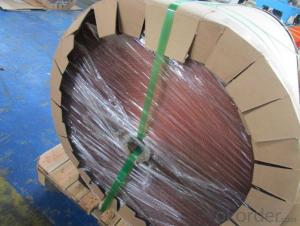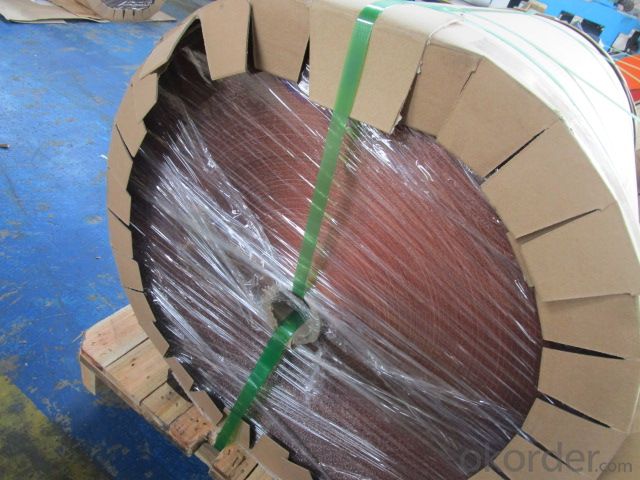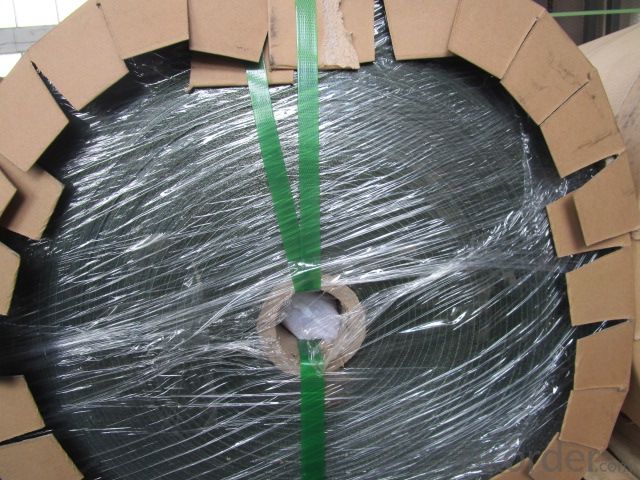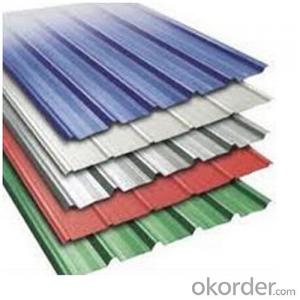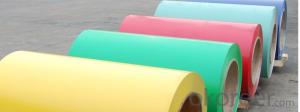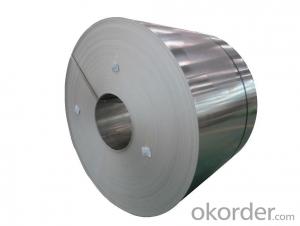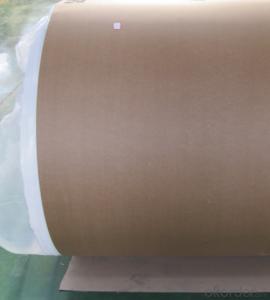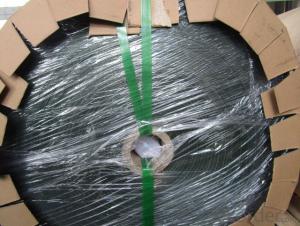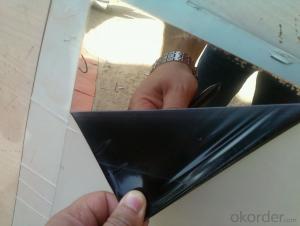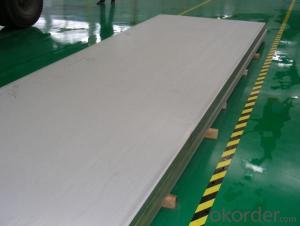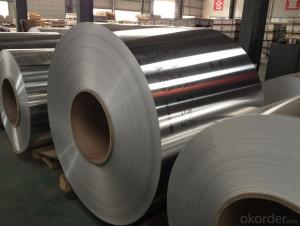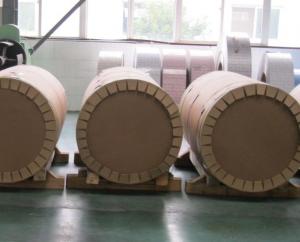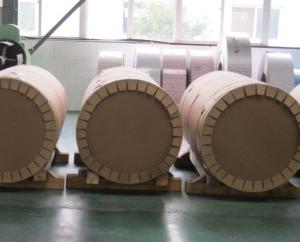Sheets of 063 Aluminum 25lbs 4 8 - Aluminium Cold Rolled Sheet with Best Price in Warehouse
- Loading Port:
- Qingdao
- Payment Terms:
- TT OR LC
- Min Order Qty:
- 6 m.t
- Supply Capability:
- 2000 m.t/month
OKorder Service Pledge
OKorder Financial Service
You Might Also Like
Specification
1.Structure of Product Description
Our CNBM's best-selling grade is aluminum sheet and cold rolled aluminum checkered sheet and mirror finished aluminum mirror sheet are all widely used in the field of construction field and decoration field, etc.
There are many different grades, FOR EXAMPLE,2000 series, 3000 series, 5000 series, 6000series,7000 series, 8000 series,etc. The detailed grade are as follows: 1010, 1050,3105, 1060,1100, 2024, 3003, 3005,7075,8011,etc.
The temper is include O,H14,F, H24, H44,H112, H114,etc.
2. Main features of the product
a.Competitive price
c. Shortest service.
3. Image.
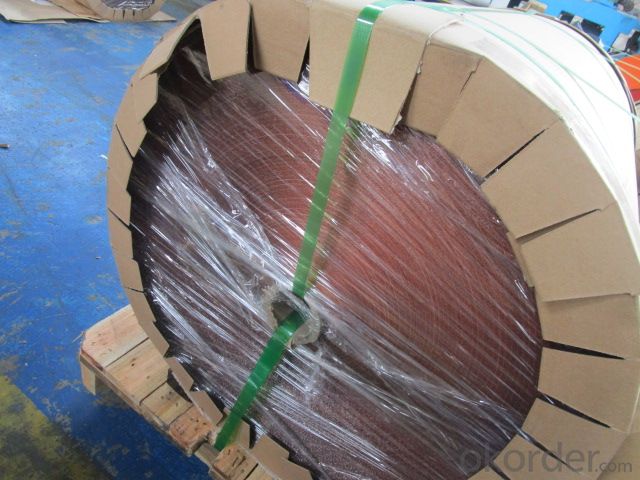
4. Product detailed sizes:
1000mm*2000mm, 1219mm*2438mm, at random sizes,etc.
5. FAQ:
What is the quality standard?
---Usually our standard is GB3880-2006 or others.
What is the width range?
---It is from 1000mm to 6000mm, etc.
What is the MOQ for your products yet?
---Normally it is around 7 tons/each size.
How many tons did you export in one year
Japan, UAE,Singapore,Fiji,Indonesia,Canada, Vietnam,Turkey,etc.
What is your mainly products?
---Normally they ainum sheet,smallr aluminium checkered sheet, big-5-bar checkered aluminium plate and slab, mirror finish aluminium sheet, aluminum casting coil, etc.
- Q: What are the limitations of using aluminum sheet?
- There are several limitations associated with using aluminum sheet in various applications. Firstly, aluminum is a relatively soft metal compared to other options such as steel or titanium. This means that it is more susceptible to scratches, dents, and deformation under heavy loads or impacts. Therefore, it may not be suitable for applications that require high strength or resistance to damage. Secondly, aluminum has lower thermal conductivity compared to other metals. This can be a disadvantage in applications where efficient heat transfer is crucial, such as in heat exchangers or cooling systems. Thirdly, aluminum is prone to corrosion. Although it has a natural oxide layer that provides some protection, it can still corrode in certain environments, especially in the presence of moisture or acidic substances. This limits its use in applications where corrosion resistance is vital, such as marine or chemical industries. Additionally, aluminum is a relatively expensive material compared to other options. Its production and extraction processes require significant energy and resources, contributing to higher costs. Therefore, it may not be the most cost-effective choice for some applications. Lastly, aluminum has limited compatibility with certain substances. It can react with certain chemicals, resulting in degradation or contamination. Therefore, it may not be suitable for applications where it will come into contact with substances that can cause adverse reactions. Overall, while aluminum sheet has numerous advantages such as its lightweight nature, good electrical conductivity, and ease of fabrication, it is important to consider its limitations when selecting it for specific applications.
- Q: Can aluminum sheets be soldered?
- Yes, aluminum sheets can be soldered, but it requires some specific techniques and materials. Aluminum has a high thermal conductivity and a low melting point, which makes it challenging to solder using traditional methods. However, it can be soldered using specialized soldering techniques such as the use of flux and a soldering iron with a high temperature. Additionally, a specific type of solder called aluminum solder or aluminum flux-cored solder is required, as regular solder does not adhere well to aluminum surfaces. It is important to clean the aluminum surface thoroughly before soldering to ensure a strong bond. Overall, while soldering aluminum sheets can be more complex compared to other metals, it is possible with the right tools, materials, and techniques.
- Q: What is the thickness of the aluminum sheets?
- The thickness of the aluminum sheets can vary depending on the specific product or application. Aluminum sheets are available in a wide range of thicknesses, typically ranging from 0.006 inches (0.15 mm) to 0.25 inches (6.35 mm) or even thicker. The appropriate thickness will depend on the specific requirements and intended use of the aluminum sheet.
- Q: Can aluminum sheet be used for heat sinks?
- Yes, aluminum sheet can be used for heat sinks. Aluminum has excellent thermal conductivity, making it a suitable material for dissipating heat. The sheet can be designed and fabricated into various shapes and sizes to effectively transfer and dissipate heat from electronic components or other heat-generating devices.
- Q: On the web page to see more information on the plating aluminum plate, I do not know what is the difference between aluminized and aluminum plating performance?
- Hot dip aluminizing applicationsAluminized steel is widely used. The type I aluminized steel plate, originally developed, is mainly used in automobile exhaust pipes and silencers. Type II is used mainly for roofing and side walls of buildings, as well as for chemical containers. The aluminized steel wire produced by the new process is expected to be used as the core of the transmission line instead of the galvanized steel wire. Aluminized steel pipe has been widely used in power plants, boilers, water wall tubes, steam pipes, heat exchangers and so on. Aluminized steel structure has been widely used in power transmission tower, told highway guardrail and so on.
- Q: Can aluminum sheet be used for automotive body-in-white applications?
- Certainly, automotive body-in-white applications can utilize aluminum sheet. Aluminum possesses the advantageous qualities of being lightweight, robust, and long-lasting, rendering it an optimal substance for automotive purposes. It presents a remarkable strength-to-weight ratio, which contributes to enhancing fuel efficiency and overall vehicle performance. Furthermore, aluminum excels in resisting corrosion, enabling it to endure harsh environmental conditions. Its malleability permits the creation of intricate and sophisticated designs, empowering manufacturers to fabricate automotive structures that are simultaneously light and sturdy. In recent times, the utilization of aluminum in automotive body-in-white applications has gained considerable popularity, primarily due to its ability to decrease vehicle weight and emissions while simultaneously maximizing safety and performance.
- Q: Are aluminum sheets suitable for outdoor signage?
- Indeed, outdoor signage greatly benefits from the usage of aluminum sheets. Renowned for its durability and resistance to weather conditions, aluminum is capable of enduring the relentless forces of the outdoors, such as rain, wind, and sunlight. Furthermore, its corrosion-resistant properties make it the perfect choice for extended outdoor usage. Moreover, aluminum sheets possess the advantage of being lightweight, ensuring effortless handling and installation. Additionally, they can be conveniently cut, bent, or molded to fashion diverse signage designs. Given its sleek and professional aesthetic, aluminum is widely favored for outdoor signage in both commercial and industrial environments.
- Q: Are aluminum sheets suitable for bulletproof applications?
- Aluminum sheets have not typically been deemed appropriate for bulletproof applications because they are relatively weak and less dense compared to other commonly used bulletproof materials, such as steel or ballistic ceramics. Despite having good corrosion resistance and a high strength-to-weight ratio, aluminum lacks the necessary hardness and toughness to effectively halt or slow down bullets. In contrast, materials like steel or ballistic ceramics possess superior properties that allow them to withstand the impact of ballistic projectiles. For instance, steel has both high hardness and strength, enabling it to absorb and disperse the energy from a bullet upon impact. On the other hand, ceramic materials have high compressive strength and hardness, causing them to shatter and absorb the energy of a bullet, thereby preventing penetration. In summary, while aluminum sheets may have various uses due to their resistance to corrosion and lightweight nature, they are generally unsuitable for bulletproof purposes. To achieve effective protection against ballistic threats, it is advisable to consider materials specifically designed and engineered for such purposes, such as steel or ballistic ceramics.
- Q: Are aluminum sheets suitable for automotive heat shields?
- Yes, aluminum sheets are suitable for automotive heat shields. They have excellent thermal conductivity and high melting point, making them effective in dissipating heat and protecting sensitive components from excessive temperature. Additionally, aluminum is lightweight and corrosion-resistant, which are desirable qualities for automotive applications.
- Q: Are the aluminum sheets suitable for manufacturing heat exchangers?
- Yes, aluminum sheets are suitable for manufacturing heat exchangers due to their excellent thermal conductivity, lightweight nature, and corrosion resistance.
Send your message to us
Sheets of 063 Aluminum 25lbs 4 8 - Aluminium Cold Rolled Sheet with Best Price in Warehouse
- Loading Port:
- Qingdao
- Payment Terms:
- TT OR LC
- Min Order Qty:
- 6 m.t
- Supply Capability:
- 2000 m.t/month
OKorder Service Pledge
OKorder Financial Service
Similar products
Hot products
Hot Searches
Related keywords
